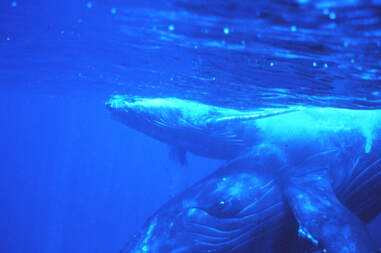
According to Jason Bittel, writing for National Geographic, Humpback Whales seem to show empathy for other species. There have been more than a hundred instances of humpback whales protecting the objects of orca hunts, rescuing non-whale animals such as seals. Altruism is one possible reason for whales protecting other species, and cetaceans (the order of marine mammals that whales, dolphins, and porpoise’s belong to) have advanced limbic systems, the part of the brain that processes emotions. This has led the Whale and Dolphin Conservation (WDC) to call for cetaceans to have individual rights under international and national law. Here are two interesting points they make.
- “The evidence suggests that whales and dolphins are not only conscious, and that bottlenose dolphins, at least, are self-awareness, but also that they have complex brain structure for complex function, that they often live in complex societies, that they are capable of experiencing a range of emotions.”
- “As we know, empathy is another very important emotion for social species, particularly because it is associated with anticipating the reaction of others. The discovery of spindle cells in the brains of some whale and dolphin species provides good supporting evidence that these species may be capable of experiencing complex emotions such as empathy and indeed that this emotion may provide an important evolutionary advantage for these highly social species.”
Empathy is defined as “the capacity to understand or feel what another person is experiences from within their frame of reference, that is, the capacity to place oneself in another’s position.” Can I truly place myself within the whale’s frame of reference? Considering this definition, can I place myself within other people’s frame of reference? I grew up in a rural PA town, and taught in a city; and now in a small rural city. What tools do these experiences give me to fully understand the frame of reference of Suyá living at the Xingu River, the Nivkh of the Sakhalin Island, or the Maasai of the African Great Lakes region? Heck, I sometimes find myself thinking suburbanites were born on Pluto! Yet it doesn’t seem to require a perfect understanding of another's life to empathize. In fact, if perfect understanding were required, empathy would be unnecessary. We would simply be the other. But we need others to work for and protect us. I can imagine myself, to some extent, as another person with a different frame of reference, even while recognizing that there are things I'll get wrong, because my understanding is imperfect.
Similarly, I can imagine living as a whale. I may not have as advanced a limbic system as whales, but I can still feel. I can imagine sharing popular whalesongs below the sea. Protecting a pup, or a seal from hunting orca. I can imagine the fear of facing a whaling ship. Of losing family members from my pod. Or the pain of inhaling plastics suffocating the oceans. However imperfect my understanding is as a human—not fully part of whale culture—there is something linked between all life on earth. We are all cells within Gaia. This is what I think is central to ecological thinking. Ecology. We can feel connected to diverse human cultures and diverse species because we are connected. All of the world is. There is not ecology without considering the more-then-human world. Diversity and stability are two traits of ecology. We are all connected. Ecological realization can lead to empathy and then action.
DS
Link to image: upload.wikimedia.org/wikipedia/commons/9/93/Sanc0603.jpg
 RSS Feed
RSS Feed
